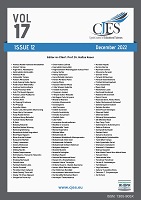The effectiveness of wetland environment static fluid e-module to train learners' science literacy
The effectiveness of wetland environment static fluid e-module to train learners' science literacy
Author(s): Andi Ichsan Mahardika, Muhammad Arifuddin, Novan Alkaf Bahraini Saputra, Muthya HayatiSubject(s): School education, State/Government and Education, Environmental interactions, Sociology of Education
Published by: Birlesik Dunya Yenilik Arastirma ve Yayincilik Merkezi
Keywords: Electronic modules; physics learning; science literacy; static fluids; wetland environment;
Summary/Abstract: This study aims to produce an electronic module (e-module) of static fluid material in a wetland environment that is effectively used to train students' science literacy. This research is a type of development using the ADDIE model (Analyze, Design, Develop, Implement, Evaluate). The trial project was ten students of class XI senior high school. Data are obtained through learners' science literacy test instruments. The data are analyzed in descriptive qualitative and quantitative. The results of data analysis show that e-modules are effective because of the high n-gain of science literacy. It was concluded that the e-module developed was effectively used to train students' science literacy on static fluid materials in wetland environments. The novelty of this research lies in the material associated with the wetland environment to introduce science literacy. The implications of this study serve as a reference for teachers and students in improving science literacy skills.
Journal: Kıbrıslı Eğitim Bilimleri Dergisi
- Issue Year: 17/2022
- Issue No: 12
- Page Range: 4556-4569
- Page Count: 14
- Language: English

